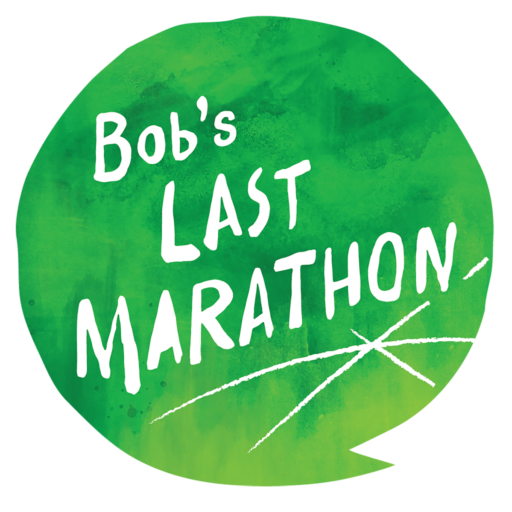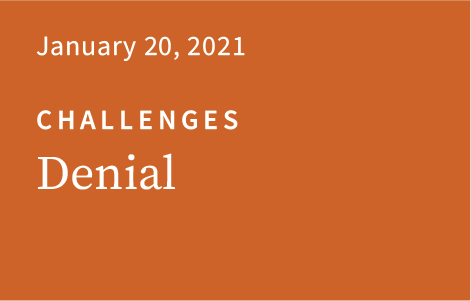Transcript
Denial
One winter day, Bob and I found ourselves at the local Department of Motor Vehicles in a modestly furnished office. Stainless steel desks. Filing cabinets, vinyl chairs. On the wall was a piece of Chinese art. We were speaking with a supervisor—I’ll call her Ms. Chan. She was Chinese, like me. She had a kindly face. With compassion, she informed me that Bob had failed his driver proficiency test. Again.
I had met Ms. Chan briefly a year and a half before, when Bob first registered for the test. At that time, Bob was newly diagnosed, and by California law, his doctor was required to notify the DMV—which triggered the need for a retest.
That day in 2014, 18 months after Bob’s diagnosis, I was still on a quest to help Bob keep his driver’s license at all costs. I wanted him to drive the single mile to and from his health club. I wanted my husband, a former pilot with a perfect driving record for over 50 years, to keep a little bit of independence. I wanted to believe Bob was still basically fine.
When Bob failed his second driving test, I hired a driving instructor. I also hired a lawyer named Tim, who specialized in helping people regain their driver’s licenses. It was with his help that Bob was allowed the multiple test attempts—and failures. Tim was waiting in the parking lot, ready to fight for another test if need be.
Ms. Chan gave me a look of intent, and informed me that if I insisted, she would schedule another test, but that the results would be the same—Bob would surely fail again. She said, “Perseverance may be a virtue, but now, we have to accept that this isn’t going to work. Bob is not going to drive again.” In my heart, I knew she was right. Something about her tone and manner—serious, touched with finality and compassion—helped me make the next decision.
I thanked her and we walked back to the car, where I then thanked Tim for his efforts, and told him I was done contesting—and we went our separate ways. Bob did not seem to fully grasp the situation. He just seemed relieved to be with me.
Ms. Chan’s honesty marked a turning point in my care for Bob. I began to realize the power of the force that had robbed me of valuable time I could have spent constructively. I could have used that time exploring options to improve Bob’s care. I could have been planning for the days ahead, when his condition would certainly decline. I see how irresponsible it was to pursue a goal that was dangerous not only for Bob as a driver, but also for others on the road.
Experts say that denial is common in the context of a life-changing diagnosis like Alzheimer’s, and I saw it not only in myself, but also in others. I remember a couple at our first support group meeting for newly diagnosed Alzheimer’s patients and families. They were very much like Bob and me in age, education, and general demeanor. I noticed the husband attending to his wife, who looked confused and agitated. When the moderator asked them to introduce themselves, the husband said, “Actually, we don’t think either one of us has the disease. We’re just here to check things out.”
When I think about it, I was denying the seriousness of Bob’s deficits for years before he was diagnosed. In 2009, three years before his diagnosis, we went to Paris, one of our favorite travel destinations. Bob was always my navigator. He might mispronounce every word, but he always knew how to get us where we needed to go. That time, though, I realized that Bob had no memory of subway stops once so familiar to him: He didn’t know which way to go. Right then I knew something was wrong. But I wasn’t willing or able to face it until our daughter said, “Get him tested,” which I did—if only to confirm that it wasn’t true. But it was.
In retrospect, there were also signs that Bob himself was aware of his deficits well before being diagnosed. After a career as an engineer, at age 69, Bob had earned a PhD in clinical psychology. But he decided that, rather than take the test for a license, he would pursue work coaching men’s groups and doing crisis intervention. He never said so, but I suspect it’s because he knew he would not pass it. Maybe this was his way of subconsciously intervening in his own crisis, one he wasn’t willing to admit. Years later, after Bob passed away, I found folders full of articles on Alzheimer’s research. I now know that he realized something was wrong, but was keeping it to himself. It saddens me to think that he harbored this fear.
Denial can take many forms, and it’s easy to underestimate its devastating effects. Driven by the fear of losing autonomy, someone who is slowly but surely beginning to experience dementia may become angry or defensive when family members offer help with things as innocent as paying bills.
Or we may deny our physical limitations, which can be dangerous. I remember a man in our support group who talked about worsening back pain from supporting his wife as they walked up the stairs to their room. Everyone in the group suggested he get help, but he insisted that he was physically strong enough to handle it. Then one day they were injured falling down the stairs together. I made a mental note, and when the time came that Bob was having trouble, I asked for our home care person to stay a little later in the day—till after dinner—to help get Bob upstairs.
Reflecting on those 18 months anguishing over Bob’s driver’s license, I feel dismayed at the amount of energy I invested in this futile effort. Our daughter, Andrea, was aware that it was a folly; she always knew that Bob would never pass the test. But wisely, she also knew I had to play it out. Deep in denial, I was not being logical, and no amount of reason would talk me out of my goal of proving Bob was still okay. I had to come to the realization myself, but with a nudge from a woman at the DMV.
Lena Chow Kuhar

